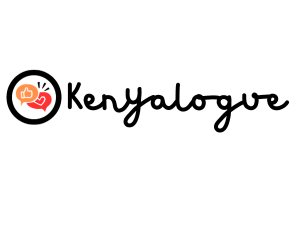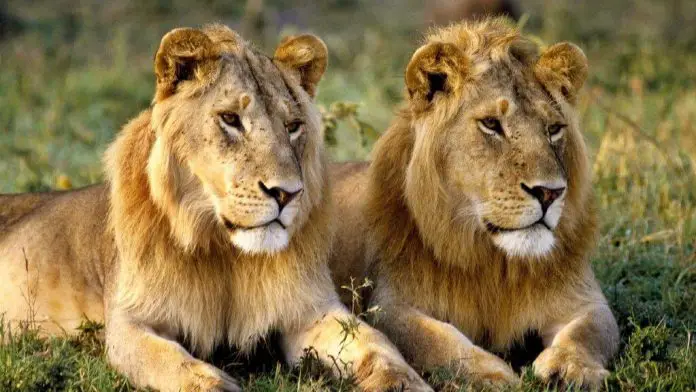Lions are iconic big cats synonymous with African wildlife. No wonder millions set out for a safari to Africa each year to witness these majestic cats.
Since Africa is the most bilingual continent, you can expect these big cats to have very different names.
Here are the top African words for lion:
1. Simba
Simba is the Swahili for a lion. The word Simba also has connotations of respect, loyalty, and power. Simba can also translate to lion king in Swahili.
Simba has a vast cultural impact among Swahili speakers in Kenya, Uganda, and Tanzania. It’s a symbol of courage and strength.
Swahili art depicts lions in powerful poses to showcase their incredible courage and strength.
2. Ingonyama
Ingonyama means lion in the Zulu language. It defines the lion as the master of flesh, thanks to its predatory nature.
The Zulu people in Botswana, South Africa, Eswatini, and Lesotho use the word Ingonyama to highlight the lion’s dominance on the food chain.
Ingonyama is the Zulu’s symbol of power.
3. Debr
Debr is the official word for lion in Amharic. The Amhara people and different Amharic-speaking ethnic groups in Ethiopia use the word to signify a lion’s masculinity and strength.
Debr has cultural significance among Amharic speakers and is a prominent symbol in Ethiopia’s Rastafari movements.
In Amharic, Debr symbolizes sovereignty, kingship, and strength.
4. Zakin
Zakin means lion in Hausa. The Hausa speakers in West Africa use Zakin to refer to a lion’s fierceness and fearsome roar.
Zakin also represents courage and strength in the Hausa culture. It symbolizes national pride for the Hausa people, underscoring a lion’s indelible impact on their culture.
5. Agudagbo
Agudagbo is a Yoruba descriptive word for lion. It means the beast with claws and teeth.
Agudagbo has a unique place in Yoruba culture. Most Yoruba people hail from Nigeria and use Agudagbo references to imply strength, power, and vigor.
Agudagbo is also an emblem of conquest, authority, protection, courage, and wisdom.
6. Shumba
The Shona people from Zimbabwe use the word Shumba to describe a lion’s thunderous roars. Shumba also means the roaring beast in Shona.
Lions have a cultural role in the Shona culture. The Shona people believed spiritual powers known as Mhondoro live in lions.
Maneless lions have a religious significance among the Shona because they host spirits until they find a suitable host.
Shona people also associate lions with fear, strength, and power.
7. Liban
Liban is the Oromo word for lion. The Oromo people use the term Liban to describe the lion’s iconic features, such as claws and teeth.
Like other African cultures, lions have important cultural relevance in the Oromo culture. These beasts of the wilderness are a symbol of protection and resilience for the Oromo and many Ethiopian ethnic groups. The Oromo also regard the lion as the symbol of kingship.
Oromo is the largest Cushitic tribe in Ethiopia, comprising of approximately 40 million people. Oromos speakers are also widespread in Somalia and Northern Kenya.
8. Negus
Negus means lion in the Tigrinya language. The Tigrinya people from Eritrea use Negus to depict the lion as the undisputed king. Negus also denotes as sovereignty, majesty, and strength among the Tigrinya people. The word is prominently featured in the Tigrayan traditional stories, poetry, and proverbs.
9. Tau
Tau is the Sotho word for lion. The Sotho people from Lesotho use Tau to describe the lion’s features.
Tau also has cultural significance among the Sotho people. It’s a symbol of leadership and bravery. The lion is an icon of conquest, strength, and authority for the Sotho people.
Sotho speakers are native to Lesotho, although there is a decent population of Sotho in South Africa, Botswana, Eswatini, and Namibia.
10. Juuf
Juuf is a Wolof descriptive word for a lion. The actual pronunciation of the word Juuf conveys primal energy and power. The Wolof people from Senegal regard lions as symbols of bravery and courage.
The lioness is a symbol of fierce motherhood and femininity in the Wolof culture.
11. Dyinnatigui
Dyinnatigui means lion in Bambara language.
Speakers of the Bambara language are native to Guinea, southern Mali, Senegal, and Burkina Faso. Dyinnatigui also means king of the savannah in Bambara, depicting a lion’s supreme reign over the savannah and its magnificent status.
Dyinnatigui is significant in the Bambara ceremonies and rituals since the Bambara people believe lions possess spiritual power and energy.
Other African Words You Should Know:
Lions are an icon of African wildlife. The continent holds these big cats in high regard since they evoke a sense of kingship, leadership, and supremacy. The many African words for lion are a testament to the significance of the big cats to all African cultures.



